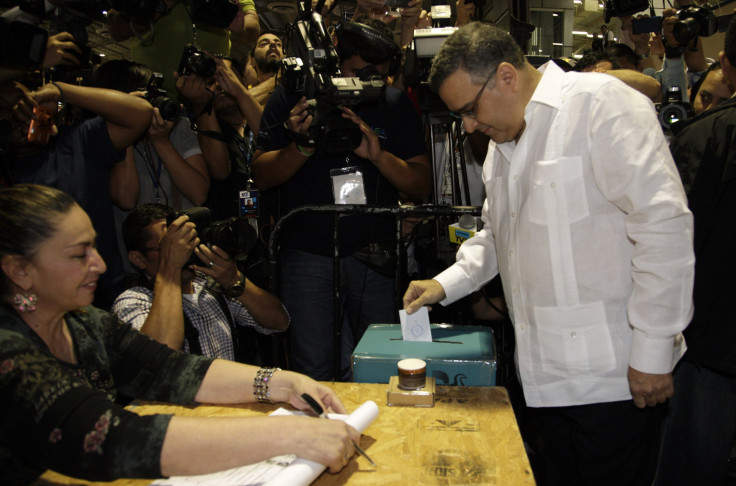
El Salvadoran Vice President Salvador Sánchez Cerén won the first round of presidential elections by a considerable margin, though not enough to avoid a March runoff. And according to Spain’s La Información, he also took the majority of votes sent in from abroad -- 1,157 of the 1,909 valid ones, out of a total of 2,727. That’s a small fraction of the 60,000 registered voters abroad. But that trickle could turn into a flood in ensuing elections, as these elections mark the first time El Salvadorans living abroad could cast a ballot for their country’s president, following the passage in 2012 of the Exterior Voting Law.
As El Pais notes, 42 percent of the country’s 6.3 million people live abroad -- and 93 percent of those reside in the United States, where El Salvadorans are expected to soon surpass Cubans to become the third-biggest Hispanic group. Those 42 percent tend to lean left, making them a highly sought constituency for the governing Frente Farabundo Martí para la Liberación Nacional (FMLN). Both the FMLN and the conservative Alianza Republicana Nacionalista (ARENA) have launched limited campaigns in the US, but problems abound with the voting process.
The new law requires voters looking to send in absentee ballots to possess a special ID with a current address, which El Pais notes has been an important obstacle, as most registered voters living abroad only have their El Salvadoran address on that ID card. Getting that address changed through consulates has proven burdensome. La Informacion reports that only about 10,000 voters abroad followed through with the processes. “The project has seen difficulties,” Salvadoran electoral council president Eugenio Chicas told the paper, though he added that he hoped it would be a reason for increased involvement in the foreign vote in coming years.
© 2025 Latin Times. All rights reserved. Do not reproduce without permission.





